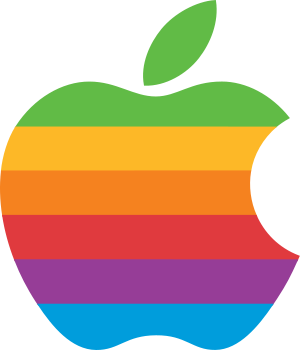So, we count down the message's Google sent loud and clear, both to developers and the market as a whole, over the course of this week’s conference.
| Sundar Pichai presenting at the Chromebook launch at Google I/O. (Photo credit: Wikipedia) |
The introduction of Google’s Nexus Q media hub left many people scratching their heads.
The $300 device looks neat and has plenty of connectivity options, but Apple already sells a device (the Apple TV) for $99, and even that doesn’t sell well. There simply isn’t much of market for these sort of devices.
But there’s something else at work here; Google knows that developers will be eager to hack away at the device, and the things they end up creating could be translated to other Android applications, or even future versions of desktop or home entertainment devices from Android OEMs.
9. “One-size-fits all” will not fly at Mountain View
Google made a point of customising each and every one of the tablet applications it unveiled at this year’s conference for the platform and screen-size of the intended device. The Android and iPad versions of Google+ were specially designed for high-resolution tablet screens, the iOS version of Chrome was built specifically for the Apple platform.
While Google may be looking to license its platforms to as many OEMs as possible, the company is still taking care to keep product quality up, and a large part of its strategy is not trying to shoehorn a single product onto multiple platforms at once.
8. Google isn’t giving up on iOS despite Maps snub
Apple may have spurned Google Maps by partnering with TomTom, but the big G has decided it still wants to work with its rival. The Android maker announced at I/O that it would offer both Drive and Chrome apps for iOS. Google's decision shows that it plans to stick it out with the mighty Apple, no matter how heated the relationship gets.
Both Apple and Google may be fighting it out in court (who isn't Apple currently in court with?) but that doesn't mean Google wants to cut ties. Apple is still number one in the mobile market and Google knows it won't win over customers by not branching out. I/O has showed us that Google's play (no pun intended) is to stay, well, civil, with Apple when it comes to end-user products.
7. Google Now will level the playing field with Siri
However, this doesn't mean the firm isn't going to take on Apple wherever it can. The firm unleashed a potential 'Siri killer' with its Google Now service. The iPhone robo-voice with celebrity friends has gotten a lot of play since its inception last year and so talking robot assistants have become the cool thing to put on your portable device these days.
Google realised it needed to join the bandwagon and so has created its very own omnipresent voice secretary.
The search giant announced Google Now will come with Jelly Bean in mid-July. That'll give it two months head-start on iOS 6's improved Siri, which drops in September. Google Now will have the ability to adjust based on user behaviour, and looks to have everything Siri's got too.
It could be just what Android needs to stay competitive in the mobile market. Now (pun intended) we'll just have to see if consumers bite.
6. Google wants a piece of Amazon’s cloud computing market
Google is gunning for the cloud crown. In the first two days of I/O Google showed off not one, but two cloud centric bits. The company opened up day two by announcing it would be releasing a Google Drive app for iOS. Then they showed off their new enterprise-centric cloud offering, Compute Engine.
Google demonstrated a Drive search equipped with image recognition software, which means if you search for pyramids, Drive will look for pictures with pyramids in them.
Google also showed off a new feature that automatically updates documents when you jump online, so you can edit a doc on a plane and then update said doc when you hit the Wi-Fi connected ground.
For a grand finale, the search giant unleashed an infrastructure-as-a-service that looks to compete with Amazon's Elastic Compute Service. Essentially, everybody's favourite search engine just said they want to be the cloud for companies.
In the grand scheme of things it's clear Google wants to boost its cloud computing market in a big way. By offering options for consumers and businesses Google is looking to become a one stop shop for everybody's needs.
5. Chromebooks are making a genuine retail push
| Picture of the new release of Google Chrome OS (Photo credit: Wikipedia) |
Google hopes to alleviate the lack of user experience on Chromebooks by offering more of them in brick-and-mortar stores.
Starting now you can check out the shiny laptops at Dixon's stores across the UK. Google wants to really push these out and let users give them a twirl. Whether customers dig the Chrome OS experience is anyone's guess, but Google's certainly trying to push them along.
4. Google is serious about bringing Project Glass to market
| SAN FRANCISCO, CA - JUNE 27: A Google employee wears Glass at Google's Developers Conference on June 27, 2012 in San Francisco, California. Google Glass, available for pre-orders to developers at $1,500, feeds the user information and uploads data and images from and to the web. Also announced during the conference was the new Nexus 7 tablet and the social streaming media player, the Nexus Q. (Image credit: Getty Images via @daylife) |
On the first day of the show, a group of skydivers wearing the augmented glasses jumped out of a blimp, then passed their glasses onto a group of bike stunt riders on the ground that jumped between buildings while wearing said glasses. The bikers then handed off the glasses to folks who rappelled off the Moscone Center while clad in augmented reality shades. Finally, the climbers handed the glasses off to bikers who rode them to the stage.
That type of giant spectacle can only mean one thing: Google is serious about Project Glass.
Whether you think the idea is cool, or crazy, Google is going all in on Project Glass. Google has vowed to ship early models of the headgear to developers by early next year. The plan is to get developers on board and then, hopefully, ship them out to consumers by 2014. It might be a huge failure but Google just got real with Project Glass.
3. Jelly Bean will be more than just another update
Google has put a lot of work into the next version of Android, far more than just a few bug fixes and a couple of new features. The Jelly Bean release will be a major update for the platform that really is a 'major update'.
Google search, for example, will become an integral part of the mobile experience and will be the main backbone of the Google Now system. The ‘Project Butter’ features may not seem like much but if they deliver what Google claims, it will be a noticeable improvement that could make other handsets seem slow and outdated.
A mid-July date will also give Android a jump of at least a couple of months on iOS 6, allowing for the Google platform to finally appear to have the upper hand against Apple, at least for a short time.
2. Google sees Android competing throughout the tablet market
Thus far, Apple has stuck to the high-end, full-size tablet space, while Amazon has more or less been content to keep its Kindle tablets around 7in in screen size.
With the launch of the Nexus 7, Google is looking to take on both. Android is already in the 10in tablet space, and now the company is telling its OEMs that it’s time to take to the 7in market as well.
Google devices are often seen as reference designs and templates for developers to work on, so even if the Nexus 7 is not a huge commercial success, it should spur other hardware vendors to move into the space.
1. Google and Apple still on collision course
| English: The logo for Apple Computer, now Apple Inc.. (Photo credit: Wikipedia) |
But when viewed as a whole, the releases at I/O clash far more with what is coming out of Cupertino than the work being done in Redmond. Along with iOS versions of Chrome, the Nexus Q suddenly becomes the biggest competitor for AppleTV and the Nexus 7 steps up pressure on an iPad.
Should rumours of a 7in iPad due out this autumn come true, the companies would find themselves in even more direct competition.
This may not be a bad thing, however. In the rapidly-growing tablet space there is more than enough room for two vendors to thrive and, should each company continue to try and best the other, consumers will benefit from better products and lower prices.
Even if you are a loyal iOS and Apple customer, you have to hope that Google put a little fear in the hearts of Tim Cook and Jonathan Ive this week at I/O.
Source: http://www.v3.co.uk/v3-uk/news/2188038/eye-catching-developments-googles-conference









No comments:
Post a Comment